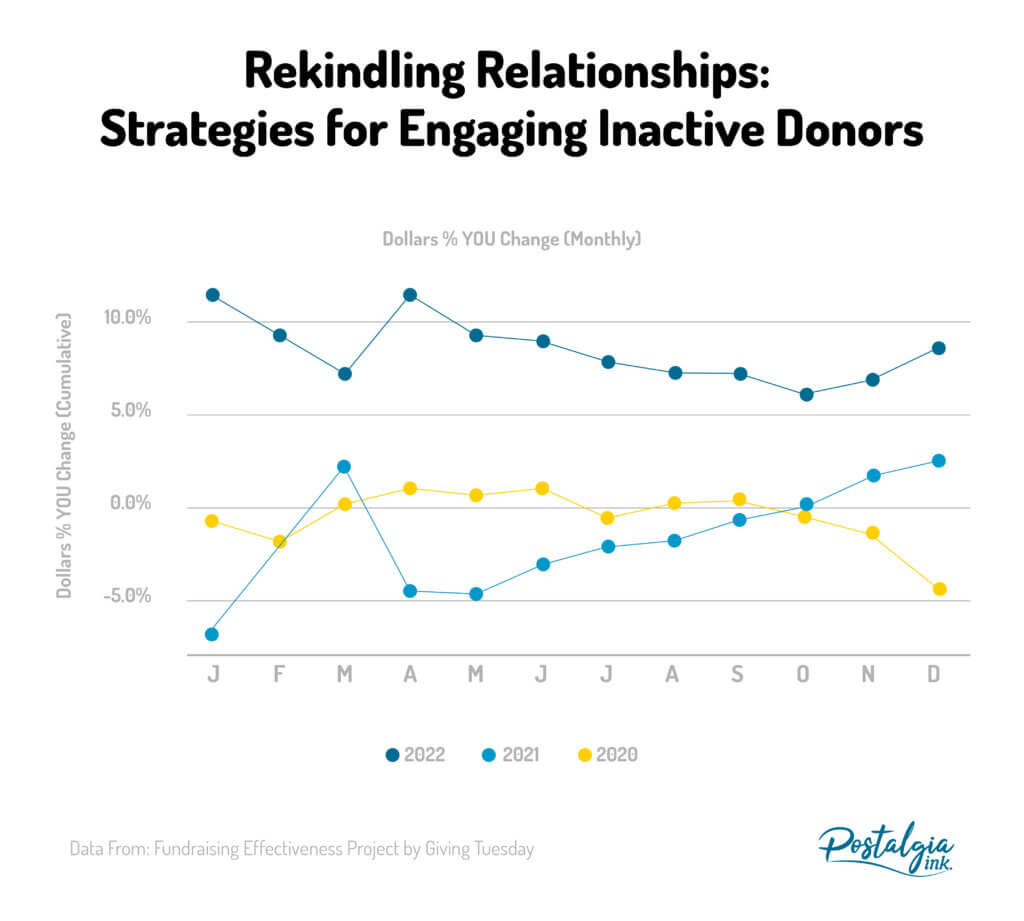Why Donors Stop Donating
By: Ilan Mann
February 16, 2020
Key Topics
How do donors loose confidence in your nonprofit?
How to re-engage inactive donors
INTRODUCTION
Donors are the lifeblood of any nonprofit organization, and their value cannot be overstated – but it can be calculated.
Many fundraising and nonprofit professionals like to think that their job is different and distinct from that of people who work in sales and marketing – and in some ways it is – but the truth is that like any other business, your non-profit cannot survive without its customers: your donors.
And just like any other business, your average donor’s lifetime value can be calculated: How much do the average donor donates to your organization, multiplied by your organization’s average retention rate. For example, if your donors donate an average of $800, but you lose 70% of your donors every year, you have got a problem.
Donors stop donating to charitable causes for all sorts of reasons, from a change in their employment status to a change of their zip code, but many of the most common reasons are within your control. Understanding these factors is essential for organizations aiming to improve donor retention. A few reasons may be a loss of confidence in the organization, lack of commitment between organizations and donors, a change in an individual’s priorities, and/or a lack of personal connection.
According to QGiv.com, the recapture retention rate is on average 5%. Approximately 70% of donors contribute only once. By identifying and addressing these factors, organizations can work towards enhancing donor satisfaction, building stronger relationships, and improving donor retention. Regular communication, transparency, and demonstrating the impact of contributions are crucial elements in maintaining a positive and enduring relationship with donors.
How do donors loose confidence in your nonprofit?
Donors may feel a lack of transparency when it comes to allocating donations, the outcome of programs, or financial practices. Even if donations are being used wisely, and people are benefiting from the programs, clear communication about how funds are allocated, and the impact achieved is essential.
Poor communication, including infrequent updates, vague reports, or a lack of responsiveness to donor inquiries, can lead to a perceived lack of engagement. Donors want to feel connected to the organization and informed about its activities.
Donors want to see tangible results and the impact of their contributions. If a nonprofit fails to showcase the outcomes of its programs or initiatives, donors may question the efficacy of their support.
Failing to acknowledge and appreciate donors can make them feel undervalued. Recognition efforts should be genuine, timely, and proportional to the level of support provided.
How to re-engage inactive donors
As we navigate the landscape of donor retention, armed with insights into the intricacies of why donors may bid farewell, it is imperative to transition from understanding to action. Effective donor retention demands a proactive approach.
Cultivate an atmosphere of transparency, ensuring donors are consistently informed about the tangible impact of their contributions. Personalize your engagement strategies—go beyond generic communication and demonstrate that each donor is valued as a unique supporter of your cause. Express genuine gratitude through handwritten notes or personalized letters, forging a connection that extends beyond a mere financial transaction. Invest in understanding your donors individually, aligning your organizational priorities with their values, and keeping their personal connection to the cause alive. In a world where distractions abound, strive to remain at the forefront of your donors’ minds through consistent, thoughtful engagement.
Remember, donor retention is not just a strategy; it’s a commitment to building lasting relationships that fortify the foundations of your organization. It’s time to embark on a journey of active donor stewardship, ensuring that your donors not only stay but become steadfast advocates for the positive change you seek to bring about.
CONCLUSION
To build a strong, sustainable fundraising machine that can survive any economic condition, just remember why donors leave in the first place:
- They lose confidence in the organization, because they no longer feel connected to the management team, or the individuals who brought them through the door in the first place.
- They feel the foundation, charity, or NFP doesn’t need them anymore, and redirect their dollars to a cause that does.
- They lose their personal connection to the cause; fundraisers don’t know them as anything more than a name on a call list, or a dollar amount, and so they don’t know how to nurture that connection. The personal touch is missing.
- They simply forget about the organization, or forget to renew their pledge, and no number of emails that go straight to their spam filter is going to remind them.
Knowing why your donors leave is a great first step towards ensuring that they never do. Great fundraisers understand that donor retention is within their control, if they’re willing to spend the time, money, and effort to manage relationships and engage their donors.

